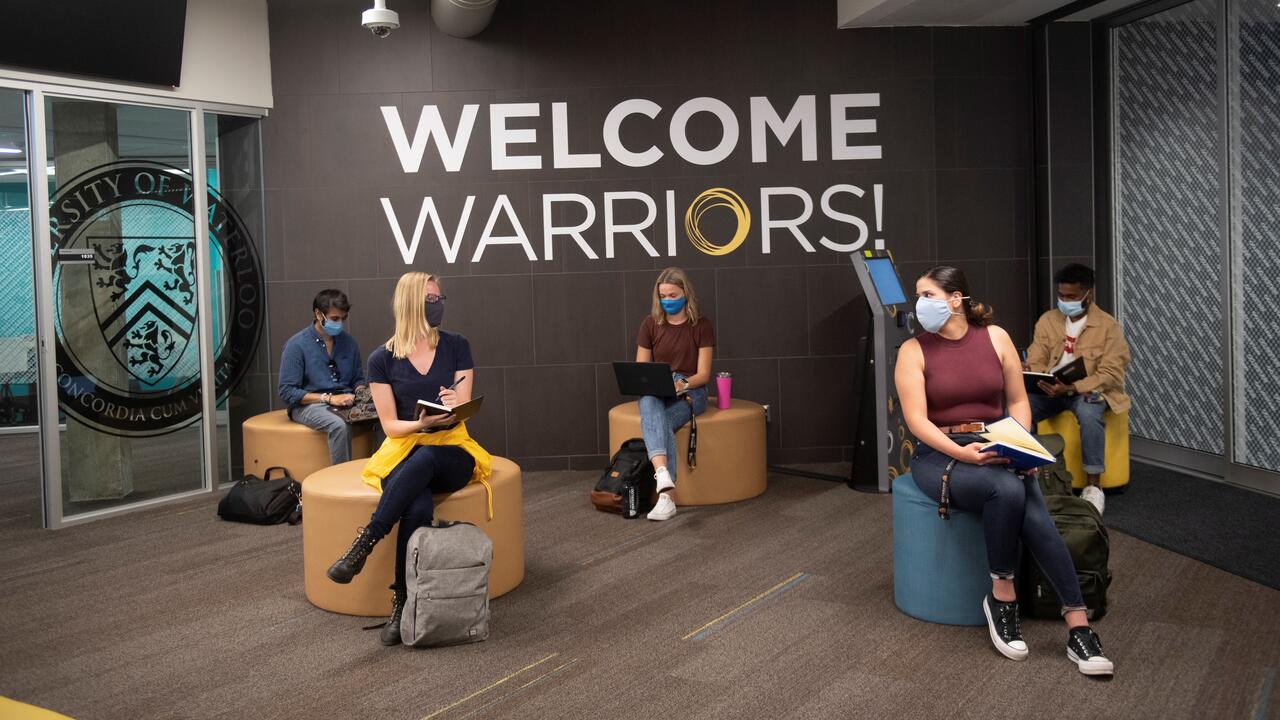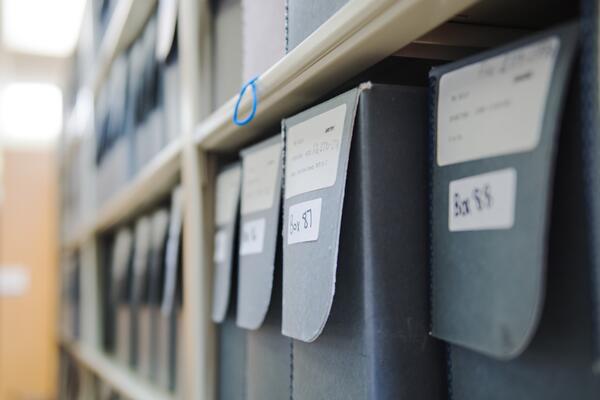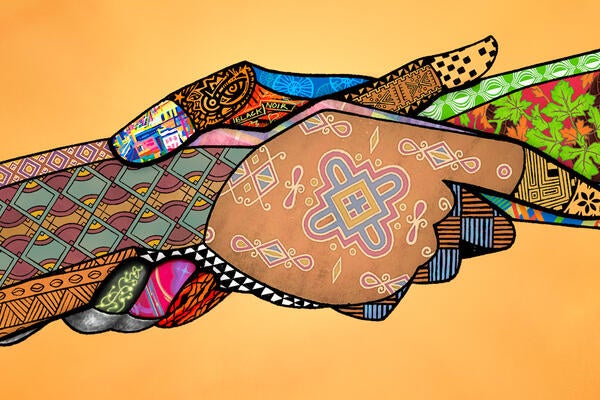
Waterloo donors prove we really are in this together
Donors provide hope and support to students struggling in the wake of the COVID-19 pandemic

Donors provide hope and support to students struggling in the wake of the COVID-19 pandemic
By Carrie Gabla Office of Advancement The African proverb "It takes a village to raise a child" calls on an entire community to interact with the child as they learn and grow. When Ayokunle Pearce talks about his challenges as an international graduate student at Waterloo, it’s this detail that comes to mind.
The African proverb "It takes a village to raise a child" calls on an entire community to interact with the child as they learn and grow. When Ayokunle Pearce talks about his challenges as an international graduate student at Waterloo, it’s this detail that comes to mind.
“When I came to Canada in the fall of last year, I had never been out of my country for an extended time,” he says. “In Nigeria, people live communally, within a network of a nuclear family, an extended family and neighbors. We gather to cook, eat and share stories. Before coming to Waterloo, this was the only way of life I had ever known.”
He had a difficult time adjusting to Canadian culture and the harsh winter climate: “I was always cold!”
In spite of the challenges, Ayokunle enjoyed going to lectures where he was surrounded by people. He even made a few friends.
Then the pandemic hit, and everything changed.
“All of a sudden I had to learn a new way of life: one of avoiding people and not being able to hug or even see my new friends,” he explains. “I couldn’t fly home. I felt trapped and alone. The money I had could no longer cover my expenses here in Canada.”
Not knowing where else to turn, he sent an email to university administrators explaining his situation. Right away, he received a response inviting him to apply to the Student Emergency Support Fund. A week after applying, Ayokunle received word that his application had been approved.
More than 2,000 donors contributed to the Student Emergency Support Fund, established to help students in need during the COVID-19 pandemic.
“It felt like pouring water on a burning fire,” he explains. “I was overwhelmed by the number of people who responded to my cry for help — Waterloo faculty, staff and donors — they all came together to fill the role of ‘village’ in my time of need. They gave me the opportunity to continue my degree.”
Two new resources are helping co-op students prepare for the challenges they face during work terms — including complications arising from the COVID-19 pandemic.
New one-on-one counselling positions and a virtual care tool expand the mental health and wellness services available to co-op education students.
The counsellor positions are made possible by a generous $1 million gift from Neil and Gisele Murdoch, parents of Waterloo alumni. The University’s Student Services Advisory Committee contributed $200,000 for the virtual health care tool and an additional counsellor position.
“The co-operative education program is an essential part of Waterloo’s unique student experience, and it’s important that we meet the health and well-being needs of our co-op students,” says Chris Read, associate provost, students. “These new resources help our students make a supportive transition into co-op terms and embrace the challenges of their work placement during this uncertain time.”

Read more
Upside Robotics secures new funding to accelerate the future of sustainable farming

Read more
Discover the meticulous work that uncovered Black stories on campus and preserved them for the future

Read more
A message from the President and Vice-Chancellor
The University of Waterloo acknowledges that much of our work takes place on the traditional territory of the Neutral, Anishinaabeg, and Haudenosaunee peoples. Our main campus is situated on the Haldimand Tract, the land granted to the Six Nations that includes six miles on each side of the Grand River. Our active work toward reconciliation takes place across our campuses through research, learning, teaching, and community building, and is co-ordinated within the Office of Indigenous Relations.